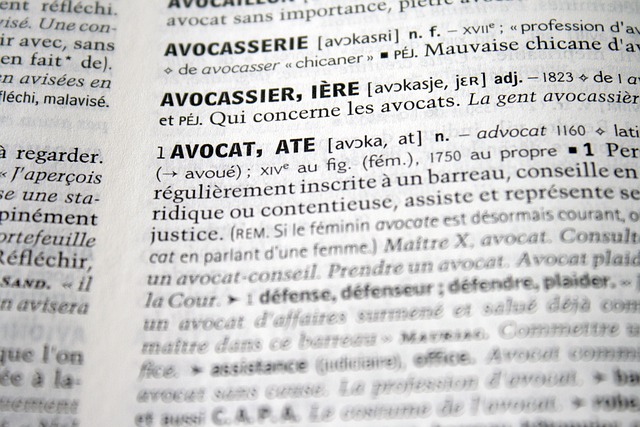In most jurisdictions, both parents share legal obligations for contributing to their child's financial needs, focusing on overall well-being. The parent with physical custody receives direct payments from the non-custodial parent based on income and time spent. Beyond finance, both parents must maintain open communication and joint decision-making in critical aspects like education and healthcare. Children have inherent rights to consistent financial contributions from both parents, crucial for covering essential expenses. Understanding these child support rights equips children and guardians to navigate the legal system, ensuring financial security. Modifications to child support agreements can be made based on significant changes in parental situations or the child's needs. Parents seeking enforcement or modification have various options, including legal actions, state assistance, and mediation services, facilitating communication and prioritizing the child's well-being.
Understanding child support rights and responsibilities is crucial for ensuring every child receives the financial care they need from both parents. This article breaks down the legal obligations of parents, the rights of children, and how support amounts are calculated. We’ll also explore when modifications can be made and enforce these agreements effectively. By understanding these key aspects, parents can navigate their child support obligations with clarity and confidence.
- What are the Legal Obligations of Parents in Child Support?
- Understanding the Rights of Children in Receiving Support
- How is Child Support Calculated and Who Determines the Amount?
- When Can Modifications or Adjustments Be Made to a Child Support Agreement?
- Enforcing Child Support: Options and Resources for Parents
What are the Legal Obligations of Parents in Child Support?

In most jurisdictions, both parents have a legal obligation to contribute to their child’s financial needs. This is a fundamental aspect of child support rights and responsibilities. The primary goal is to ensure that children receive the resources they need for their overall well-being and development. When it comes to legal obligations, the parent with physical custody typically receives direct payments from the non-custodial parent, which are determined based on factors like income, time spent with the child, and local guidelines.
These obligations extend beyond financial contributions. Both parents have a duty to maintain open lines of communication and make joint decisions regarding their child’s upbringing, healthcare, education, and other critical aspects. It’s essential for parents to understand their rights and responsibilities in child support to foster a healthy and stable environment for their children.
Understanding the Rights of Children in Receiving Support

Children have inherent rights when it comes to receiving child support, which is a crucial aspect of ensuring their well-being and future prosperity. These rights are established to protect them from financial instability and ensure they grow up in an environment where their basic needs are met. The primary right is to receive consistent financial contributions from both parents, which helps cover essential expenses like food, shelter, education, and healthcare. This support is not merely a luxury but a necessity for a child’s healthy development.
Understanding these rights empowers children and their guardians to navigate the legal system effectively. It means knowing that they have a say in ensuring their financial security and that their needs are prioritized. By recognizing these child support rights, parents are encouraged to fulfill their obligations, fostering a sense of responsibility and mutual understanding for the benefit of their offspring.
How is Child Support Calculated and Who Determines the Amount?

Child support is a financial contribution from a parent (or parents) to their children after a separation or divorce. The amount is calculated based on several factors, primarily the needs of the child and the earning capacity of each parent. Key considerations include the time the child spends with each parent, the cost of basic necessities like food, clothing, and housing, as well as healthcare and other expenses.
The calculation is typically determined by state laws and local guidelines, ensuring a fair and consistent approach. Child support agencies or courts usually evaluate income, assets, and standard of living to arrive at an amount that supports the child’s well-being and maintains a reasonable standard of living, considering both parents’ obligations. This process aims to protect the rights of children to receive financial security from their parents, regardless of parental separation.
When Can Modifications or Adjustments Be Made to a Child Support Agreement?

When it comes to child support agreements, modifications or adjustments can be made under specific circumstances. These changes are typically warranted when there has been a significant shift in the financial or personal situations of either parent. For instance, if one parent experiences a substantial decrease in income due to job loss or a reduction in working hours, they may request a review of the current child support arrangement. Similarly, if there are alterations in the child’s needs, such as increased medical expenses or special educational requirements, both parents can collaborate to adjust the payments accordingly.
Legal processes and guidelines govern these modifications, ensuring fairness and the best interest of the child. Parents should be proactive and communicate openly regarding any changes in their lives that might impact the child support agreement. Regularly reviewing and updating the arrangement is essential to maintaining a healthy financial relationship while prioritizing the needs of the child.
Enforcing Child Support: Options and Resources for Parents

When it comes to enforcing child support, parents have several options and resources at their disposal. Legal avenues include filing a motion with the court to enforce the existing order or modify it if circumstances change. This process often involves document collection, financial disclosures, and potentially court appearances. Many states also offer assistance programs that provide guidance and support throughout the enforcement process.
Additionally, there are private organizations and non-profit groups dedicated to helping parents navigate child support matters. These entities may offer mediation services, legal aid, or financial management tools to ensure both parties understand their rights and responsibilities. Utilizing these resources can streamline the enforcement process, foster communication, and ultimately benefit the well-being of the child involved.






